kidney & bladder support

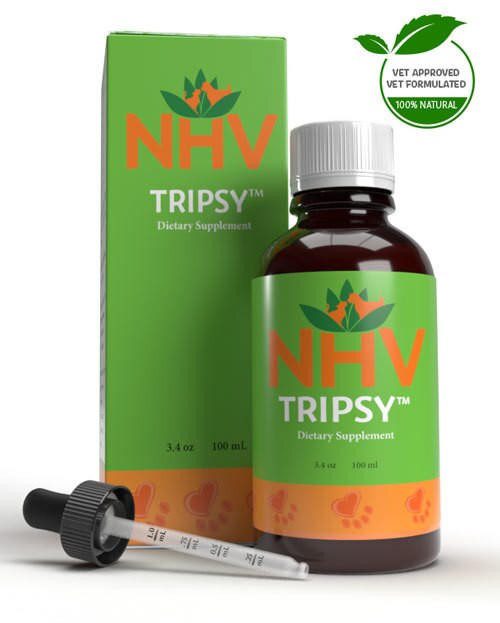
free shipping over $100 (USA & Canada)
1-877-937-4372 the pet expert hotline
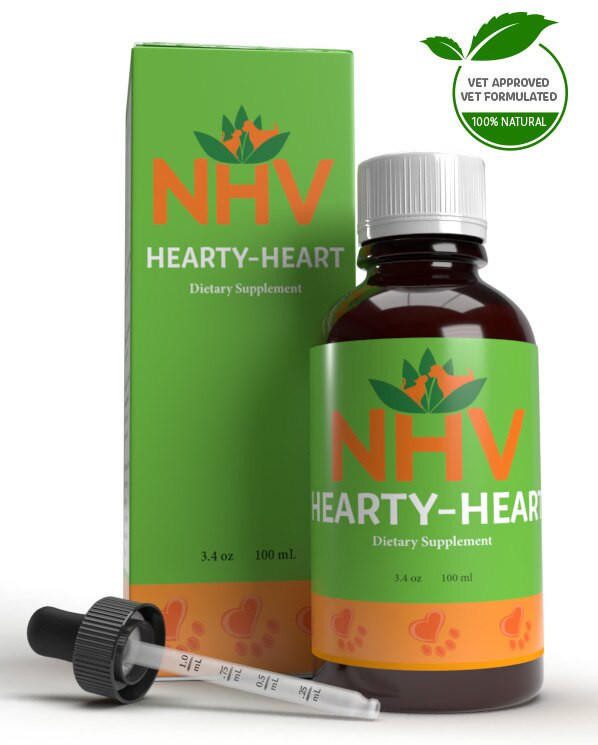
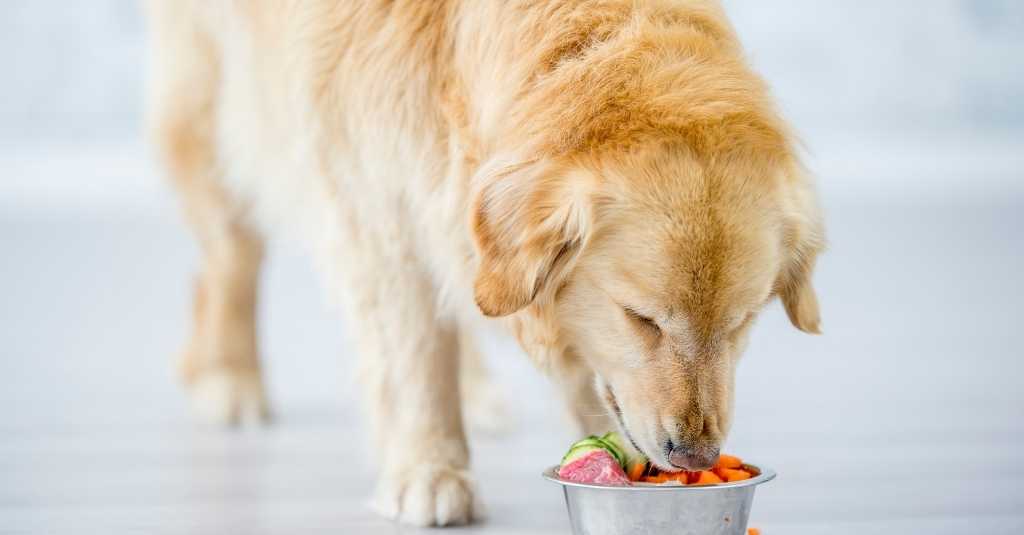
As the saying goes, you are what you eat.
We all want our pets to be happy and healthy and live long fulfilling lives, so paying close attention to a pet’s food diet is essential to their health. There is no doubt that commercial pet foods are practical and cost-effective, and most of them are nutritionally satisfactory for your pet. However, this value and practicality may come at a price. Many commercial diets contain preservatives and additives which may not be in our pets’ best interest. So why limit them to boring dry kibble if you have the option to add a bit of wholesome, fresh, natural foods to your pet’s diet?
Food is the fuel that the body uses to maintain all of its functions.
Food is the fuel that the body uses to maintain all of its functions. It needs to be complete, varied, nutritious, and able to offer all the benefits that your pet needs to remain healthy, to keep in good physical condition, and maintain a long life expectancy.
Below are 6 reasons why homemade food may be better for your pet:
If “additives and preservatives” are bad for us, imagine for pets. Different additives used in the food industry may have differing effects on the body. Some may lead to certain types of cancer, others destroy the nutritional value of the ingredients. While none of these products are used in a quantity that is acutely dangerous to you or your pet, over time these substances can have a negative effect on the body. Natural food does not include any preservatives or additives and must be made with fresh ingredients, conserved in the fridge or freezer in the correct way.
Homemade food is a fresh natural food, rich in protein. It has much less starch than industrialized dry food and, therefore, less risk of your pet being overweight. It is easier for you to regulate the exact nutrients your pet receives when you home cook for your pet. Commercial pet foods provide a ‘guaranteed analysis’ of their diets, however, these are often listed as a range, leaving you in the dark about the exact numbers of proteins, fats, and carbohydrates in the diet.
Studies have shown that homemade food has a lot of advantages compared to industrialized food. The fresh, nutritious ingredients are rich in vitamins and minerals, whereas processing foods may remove some of the nutritional value of the ingredients used. Fresh, natural foods give a beautiful boost to the immune system, helping to keep your pet healthy.
Home-cooked diets contain a much higher moisture content than industrialized dry food, which provides better digestion and helps to avoid kidney and urinary problems (especially in cats, who usually consume less water).
Your dog or cat will recognize the dedication put into his food. Animals are sensitive and replace the absence of words with feelings they will certainly be able to convert your effort into gratitude and affection. Animals fed just with industrialized food may not enjoy eating, because their diet is limited only to the same food every single day. Homemade food can provide plenty of different tastes and nutrients, therefore your pet will eat for interest, not only for the obligation.
Homemade food also is very helpful when your pet is going through a difficult situation, such as obesity, cancer, allergies, diabetes, and other pathology. You can use specific nutrients and supplements that will accelerate the recovery and sometimes solve the problem. For example, during my veterinary practice, I created specific diets for animals that were experiencing several problems or those who did not want to eat. These diets were essential for the recovery of these animals. As a researcher, I conducted some trials during my Ph.D. where I discovered and published in my thesis and scientific journal that the correct supplementation of zinc is fundamental and helpful in guarding against inflammation.
Below is a list of the essential nutrients needed in a diet in different cases of diseases.
Pets with heart failure should receive a diet with reduced sodium levels, to avoid cardiac overload. The proteins must be increased so that the animal does not suffer from cardiac cachexia. Cardiac cachexia is a condition in which the animal begins to use its own muscles as a source of energy, drastically thinning. Pets suffering from kidney failure and heart failure should preferentially follow the diet for kidney patients. NHV Hearty-Heart helps to keep the heart muscle strong and improves circulation. It is a great additive to a heart-healthy diet for your pet.
When a pet has kidney failure, his body becomes intoxicated with products that are generated by the body itself during the processing of proteins. For this reason, the diet of pets with renal insufficiency should be very restricted in proteins. The amount of sodium should also be reduced, and the blood levels of certain minerals – such as phosphorus and potassium – should be monitored for adjustments to be made to the diet according to the needs of each animal. NHV Tripsy is a natural anti-inflammatory that helps to maintain kidney and urinary health. It helps to support the kidneys during kidney failure and inhibits infections, which can be detrimental to kidney health.
Pets suffering from kidney failure and heart failure should preferentially follow the diet for kidney patients.
Different liver diseases lead pets to have different nutritional needs. In general, pets suffering from liver disease require a higher concentration of energy in their diet. This can be achieved by adding fats, which should account for the largest portion of the diet’s calories – unless the animal has hyperlipidemia or steatorrhea. Proteins should be maintained at normal or elevated levels and should be restricted only in more severe cases (hepatic encephalopathy). Supplementation with vitamins and minerals may be necessary. NHV Milk Thistle is great liver support that can be added to any homemade or commercial diet when a pet is suffering from liver disease.
Pets with diabetes have difficulty keeping blood sugar levels within acceptable limits. To help you in this mission, we must provide them with a diet with fewer grains and carbohydrates, and more protein. It is important that the diet is also high in fiber, which helps regulate blood glucose and maintain a healthy weight if the animal is obese. NHV Mellit can help the body regulate blood sugar levels and ease the frustrating symptoms of diabetes in your pet.
Pets that have cancer often suffer from a condition called cachexia. Cachexia is a fast and pathological form of slimming, in which the body quickly consumes all of its energy stores, including muscle tissue. To get around this situation, it is recommended that the diet has high caloric concentration, coming mainly from fats and high levels of proteins. Vitamin and mineral supplementation may also be required. NHV Multi Essentials can help to fill any nutritional voids your pet is experiencing and help to increase energy levels. NHV ES Clear and NHV Natures Immuno work very well synergistically to help the body through its fight with cancer.
When developing a proper diet for your pet, it is necessary to understand animal anatomy, physiology, pathology, and the composition of the food.
Therefore, an excellent homemade diet requires the advice and supervision of a veterinarian that will prescribe a full and balanced diet for your pet. Otherwise, you run the risk of not covering all the nutritional requirements that your animal needs to be healthy.
NHV and I are pleased to now offer a custom recipe service for you and your pet. With this service, you will provide us with your pet’s basic medical history and I will help to develop a custom recipe and meal plan for your pet, complete with recommendations on NHV Supplements. I am looking forward to helping you and your pet share many more happy, healthy days together!
Always remember to consult your veterinarian when making any change to your pet’s diet.
kidney & bladder support


Support for urinary tract, kidney, and bladder problems in dogs
buy 2 and save $3
3 month supply for a small to medium size
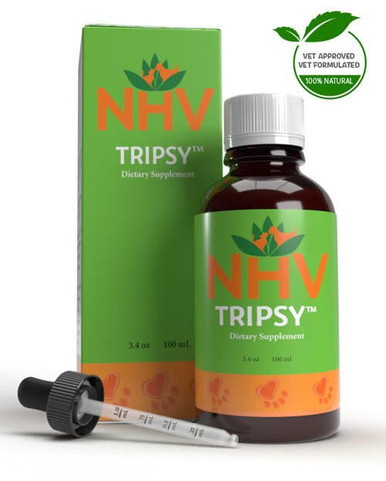
NHV’s Tripsy™ is specially formulated to contain gentle and effective herbal ingredients that help encourage healthy kidney function, proper urinary health and may help with discomfort associated with kidney problems.
When dogs get urinary tract and kidney disorders, it can be very uncomfortable. Poor diets can contribute to kidney stones and even kidney failure, so supporting your canine with supplements that can help is imperative.
NHV Tripsy helps the body stay balanced in many ways. Here are four main organs that may benefit from this gentle kidney support blend.
Powerful Ingredients Effectively Formulated
Read about a recent study done at the University of Georgia College of Veterinary Medicine that found that NHV’s Tripsy, may be beneficial in helping against urinary stone formation.
All NHV’s supplements including those for dog bladder problems are safe to be given along with any vet prescribed medications and are third-party tested to guarantee quality and concentration.
Connect With NHV
If you have questions or concerns about holistic supplements, ask an NHV expert because our pet experts are here to help offer guidance and support for any health issues your pet may have including kidney problems in dogs. At NHV, your dog’s health and well-being is our top priority.
Stone Root – Acts as a tonic for the capillaries and prevents the formation of kidney calculi.
Parsley Piert – Aids digestion. Also used to aid fever, kidney stones, bladder stones, and fluid retention.
Wild Hydrangea – Can help relieve discomfort while increasing the flow of urine and eliminating swelling and fluid retention.
Gravel Root – Restores and cleanses the genitourinary (reproductive and urinary) organs.
Echinacea Purpurea – Contains strong immune-stimulating properties.
Marshmallow – An anti-inflammatory that controls bacterial infections and soothes and softens irritated tissues.
Oregon Grape – Helps relieve indigestion and malabsorption. Also has antibiotic and immunostimulatory properties.
Select your pet's weight to determine the correct dose.
To be taken twice daily. Determine your pet’s weight and then use the easy chart below to determine the correct dose. This is the minimum dosage.
Pet's Weight Dosage
0 - 15 lb = 0.5 ml
16 - 30 lb = 1.0 ml
31 - 45 lb = 1.5 ml
46 - 60 lb = 2.0 ml
61 - 75 lb = 2.5 ml
Over 75 lb = 3.0 ml
How to Administer
Shake well before use. The easiest method is to use the dropper provide and places the drops into your pet’s food or favorite treat. You can also use the dropper and squirt directly into the pet’s mouth.
Some pets can be finicky, if this occurs consider hiding the drops in foods most pet’s love such as fish, chicken or yogurt or a favorite treat. If your pet only eats dry food then soak a few kibbles at feeding time.
For Best Results
Herbal dietary supplements are beneficial to the health and wellbeing of your pet and are safe for long-term use. Every pet responds to natural herbal supplements differently, therefore it is important to be consistent and administer the product daily. Supplements generally take two to four weeks to take effect, however this will vary from one animal to the next.
Product Storage
All NHV Natural Pet Products are pure herbal extracts and contain no artificial additives, preservatives or coloring. Shelf life after opening is 6 months and must be refrigerated after opening.
Cautions and Contraindications
Do not use Tripsy if your pet is pregnant. No known side effects. Speak to your vet before using our products. A second visit is recommended if your pet’s condition does not improve, or deteriorates after continued use of the supplements.
All information provided by NHV Natural Pet Products is for educational purposes only.
NHV’s Tripsy™ is specially formulated to contain gentle and effective herbal ingredients that help encourage healthy kidney function, proper urinary health and may help with discomfort associated with kidney problems.
When dogs get urinary tract and kidney disorders, it can be very uncomfortable. Poor diets can contribute to kidney stones and even kidney failure, so supporting your canine with supplements that can help is imperative.
NHV Tripsy helps the body stay balanced in many ways. Here are four main organs that may benefit from this gentle kidney support blend.
Powerful Ingredients Effectively Formulated
Read about a recent study done at the University of Georgia College of Veterinary Medicine that found that NHV’s Tripsy, may be beneficial in helping against urinary stone formation.
All NHV’s supplements including those for dog bladder problems are safe to be given along with any vet prescribed medications and are third-party tested to guarantee quality and concentration.
Connect With NHV
If you have questions or concerns about holistic supplements, ask an NHV expert because our pet experts are here to help offer guidance and support for any health issues your pet may have including kidney problems in dogs. At NHV, your dog’s health and well-being is our top priority.
Stone Root – Acts as a tonic for the capillaries and prevents the formation of kidney calculi.
Parsley Piert – Aids digestion. Also used to aid fever, kidney stones, bladder stones, and fluid retention.
Wild Hydrangea – Can help relieve discomfort while increasing the flow of urine and eliminating swelling and fluid retention.
Gravel Root – Restores and cleanses the genitourinary (reproductive and urinary) organs.
Echinacea Purpurea – Contains strong immune-stimulating properties.
Marshmallow – An anti-inflammatory that controls bacterial infections and soothes and softens irritated tissues.
Oregon Grape – Helps relieve indigestion and malabsorption. Also has antibiotic and immunostimulatory properties.
Select your pet's weight to determine the correct dose.
To be taken twice daily. Determine your pet’s weight and then use the easy chart below to determine the correct dose. This is the minimum dosage.
Pet's Weight Dosage
0 - 15 lb = 0.5 ml
16 - 30 lb = 1.0 ml
31 - 45 lb = 1.5 ml
46 - 60 lb = 2.0 ml
61 - 75 lb = 2.5 ml
Over 75 lb = 3.0 ml
How to Administer
Shake well before use. The easiest method is to use the dropper provide and places the drops into your pet’s food or favorite treat. You can also use the dropper and squirt directly into the pet’s mouth.
Some pets can be finicky, if this occurs consider hiding the drops in foods most pet’s love such as fish, chicken or yogurt or a favorite treat. If your pet only eats dry food then soak a few kibbles at feeding time.
For Best Results
Herbal dietary supplements are beneficial to the health and wellbeing of your pet and are safe for long-term use. Every pet responds to natural herbal supplements differently, therefore it is important to be consistent and administer the product daily. Supplements generally take two to four weeks to take effect, however this will vary from one animal to the next.
Product Storage
All NHV Natural Pet Products are pure herbal extracts and contain no artificial additives, preservatives or coloring. Shelf life after opening is 6 months and must be refrigerated after opening.
Cautions and Contraindications
Do not use Tripsy if your pet is pregnant. No known side effects. Speak to your vet before using our products. A second visit is recommended if your pet’s condition does not improve, or deteriorates after continued use of the supplements.
All information provided by NHV Natural Pet Products is for educational purposes only.
liver support
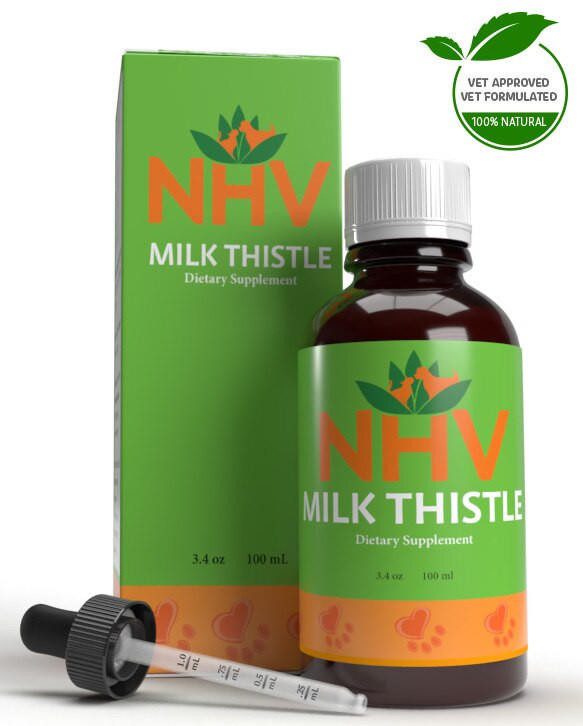
100% Natural Liver and Kidney Detox and Cancer Support in Cats
buy 2 and save $3
3 month supply for a small to medium size pet
A popular herb among conventional and holistic veterinarians, Milk Thistle is often recommended for cats who have liver disorders, are fighting cancer, diabetes, kidney issues, gallbladder and bile duct issues, as well as hyperthyroidism.

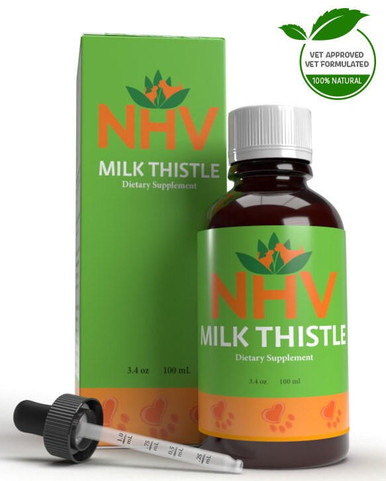
A popular herb among conventional and holistic veterinarians, Milk Thistle is often recommended for cats who have liver disorders, are fighting cancer, diabetes, kidney issues, gallbladder and bile duct issues, as well as hyperthyroidism.

Milk thistle, also known as Silybum Marianum is an herb that has been used for thousands of years by humans for its powerful medicinal properties. The active ingredient is Silymarin which contains flavonoids that have many beneficial properties including:
Milk thistle is one of the few herbs that have no equivalent in conventional medicine and has many uses. You can read about the many applications of Milk Thistle for cats and dogs on Dr. Hillary Cook's blog.
Milk Thistle for Liver Function
Milk Thistle for cats with liver disease is glycerin-based and safe for long-term use. This potent herbal formula provides excellent proactive support and can be taken in conjunction with conventional treatment.
Milk Thistle for Kidney Function
Milk Thistle for Anti-Cancer Support
Milk Thistle may also be beneficial to cats undergoing chemotherapy as Silymarium may enhance the activity of certain chemo drugs.
You can read Peachez's Story with Milk Thistle for cats and how it helped her with cancer and liver problems.
NHV’s certified organic Milk Thistle is a safe herb that is recommended and used by holistic practitioners. All of our products are all-natural and formulated by veterinarians with a focus on comprehensively supporting the health and well-being of your feline family member.
If you have questions about Milk Thistle or any of our plant-based products, ask an NHV expert because at NHV we want your kitty’s health to be purrfect!
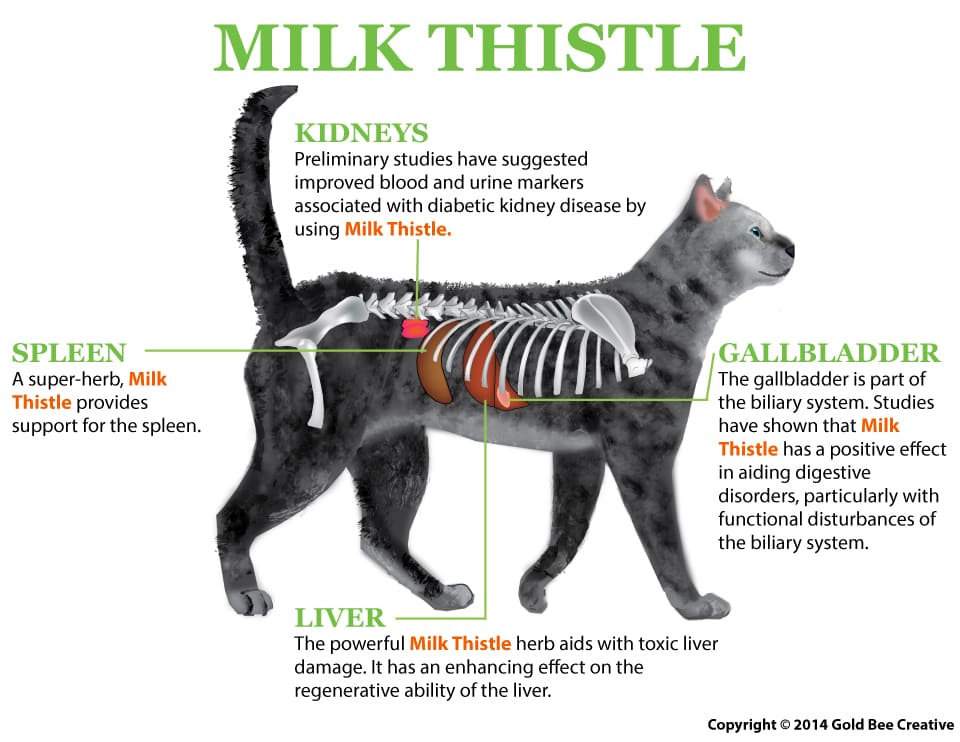
NHV’s Milk Thistle for Cats contains just one ingredient.
Select your pet's weight to determine the correct dose.
To be taken twice daily. Determine your pet’s weight and then use the easy chart below to determine the correct dose. This is the minimum dosage.
Pet's Weight Dosage
0 - 15 lb = 0.5 ml
16 - 30 lb = 1.0 ml
31 - 45 lb = 1.5 ml
46 - 60 lb = 2.0 ml
61 - 75 lb = 2.5 ml
Over 75 lb = 3.0 ml
How to Administer
Shake well before use. The easiest method is to use the dropper provide and places the drops into your pet’s food or favorite treat. You can also use the dropper and squirt directly into the pet’s mouth.
Some pets can be finicky, if this occurs consider hiding the drops in foods most pet’s love such as fish, chicken or yogurt or a favorite treat. If your pet only eats dry food then soak a few kibbles at feeding time.
For Best Results
Herbal dietary supplements are beneficial to the health and wellbeing of your pet and are safe for long-term use. Every pet responds to natural herbal supplements differently, therefore it is important to be consistent and administer the product daily. Supplements generally take two to four weeks to take effect, however this will vary from one animal to the next.
Product Storage
All NHV Natural Pet Products are pure herbal extracts and contain no artificial additives, preservatives or coloring. Shelf life after opening is 6 months and must be refrigerated after opening.
Cautions and Contraindications
Do not use Milk Thistle in pregnant or nursing animals. Speak to your vet before using our products. A second visit is recommended if your pet’s condition does not improve, or deteriorates after continued use of the supplements.
All information provided by NHV Natural Pet Products is for educational purposes only.
Milk thistle, also known as Silybum Marianum is an herb that has been used for thousands of years by humans for its powerful medicinal properties. The active ingredient is Silymarin which contains flavonoids that have many beneficial properties including:
Milk thistle is one of the few herbs that have no equivalent in conventional medicine and has many uses. You can read about the many applications of Milk Thistle for cats and dogs on Dr. Hillary Cook's blog.
Milk Thistle for Liver Function
Milk Thistle for cats with liver disease is glycerin-based and safe for long-term use. This potent herbal formula provides excellent proactive support and can be taken in conjunction with conventional treatment.
Milk Thistle for Kidney Function
Milk Thistle for Anti-Cancer Support
Milk Thistle may also be beneficial to cats undergoing chemotherapy as Silymarium may enhance the activity of certain chemo drugs.
You can read Peachez's Story with Milk Thistle for cats and how it helped her with cancer and liver problems.
NHV’s certified organic Milk Thistle is a safe herb that is recommended and used by holistic practitioners. All of our products are all-natural and formulated by veterinarians with a focus on comprehensively supporting the health and well-being of your feline family member.
If you have questions about Milk Thistle or any of our plant-based products, ask an NHV expert because at NHV we want your kitty’s health to be purrfect!

NHV’s Milk Thistle for Cats contains just one ingredient.
Select your pet's weight to determine the correct dose.
To be taken twice daily. Determine your pet’s weight and then use the easy chart below to determine the correct dose. This is the minimum dosage.
Pet's Weight Dosage
0 - 15 lb = 0.5 ml
16 - 30 lb = 1.0 ml
31 - 45 lb = 1.5 ml
46 - 60 lb = 2.0 ml
61 - 75 lb = 2.5 ml
Over 75 lb = 3.0 ml
How to Administer
Shake well before use. The easiest method is to use the dropper provide and places the drops into your pet’s food or favorite treat. You can also use the dropper and squirt directly into the pet’s mouth.
Some pets can be finicky, if this occurs consider hiding the drops in foods most pet’s love such as fish, chicken or yogurt or a favorite treat. If your pet only eats dry food then soak a few kibbles at feeding time.
For Best Results
Herbal dietary supplements are beneficial to the health and wellbeing of your pet and are safe for long-term use. Every pet responds to natural herbal supplements differently, therefore it is important to be consistent and administer the product daily. Supplements generally take two to four weeks to take effect, however this will vary from one animal to the next.
Product Storage
All NHV Natural Pet Products are pure herbal extracts and contain no artificial additives, preservatives or coloring. Shelf life after opening is 6 months and must be refrigerated after opening.
Cautions and Contraindications
Do not use Milk Thistle in pregnant or nursing animals. Speak to your vet before using our products. A second visit is recommended if your pet’s condition does not improve, or deteriorates after continued use of the supplements.
All information provided by NHV Natural Pet Products is for educational purposes only.
diabetes support
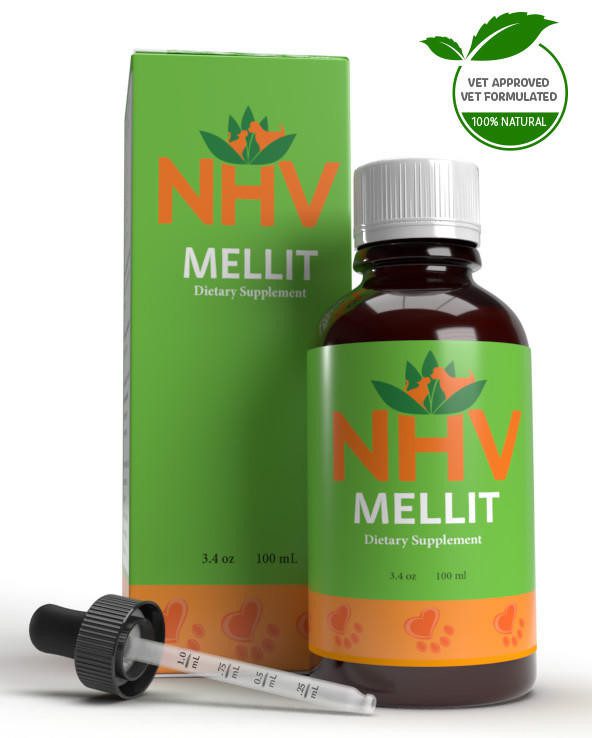
For Diabetes Mellitus and Pancreatitis
buy 2 and save $3
3 month supply for a small to medium size pet
Mellit is an herbal formulation that helps control blood sugar levels and strengthens and may help protect other organs from serious imbalances that may be triggered throughout the body.

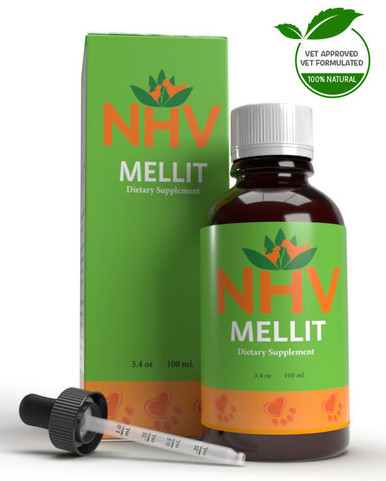
Mellit is an herbal formulation that helps control blood sugar levels and strengthens and may help protect other organs from serious imbalances that may be triggered throughout the body.

Gentle Yet Powerful Support for Your Dog
Pancreatitis and diabetes mellitus in dogs are both signs that their pancreas isn’t working as it should, and can mean real trouble for your pup. In addition to vet-prescribed treatment, natural remedies can help. Mellit is used in the support of pancreatitis and diabetes mellitus in dogs.
How NHV Remedies Provide Comprehensive Support for Your Dog
Mellit was formulated with just the right concentration of all-natural ingredients to help dogs with diabetes mellitus and act as a support supplement for dogs with pancreatitis. It’s human-grade quality and produced in a facility approved by the GMP and FDA. Here at NHV, we make a huge investment in clinical research every year, and have our supplements regularly tested by independent labs.
NHV supplements like Mellit are formulated by veterinarians with 20+ years of experience to deliver quick, yet gentle support to your dog where it’s needed. Mellit has powerful ingredients that help balance your dog’s digestive enzymes while lowering their cholesterol and triglycerides.
About Diabetes Mellitus in Dogs
A dog suffering from diabetes either has a shortage of insulin in their body, or their cells are resistant to it. This keeps their organs from converting the glucose in their blood into energy, resulting in too much glucose in their blood.
Insulin is a hormone produced in the pancreas, and supporting the pancreas through all-natural supplements may help with symptoms of diabetes.
About Pancreatitis in Dogs
The pancreas is a small organ that produces digestive enzymes. In dogs, there is a chance the pancreas may become inflamed. The most common reason this happens to dogs is because they’ve eaten something they’re not supposed to, especially something high in fat.
An inflamed pancreas has a chance of leaking digestive enzymes. When that happens, the result is pancreatitis.
Provide Comprehensive Support for your Pet
Order Mellit for your dog, a supplement for dogs with pancreatitis or diabetes mellitus. Together with the conventional treatment prescribed by their veterinarian, Mellit will help your dog with comprehensive support.
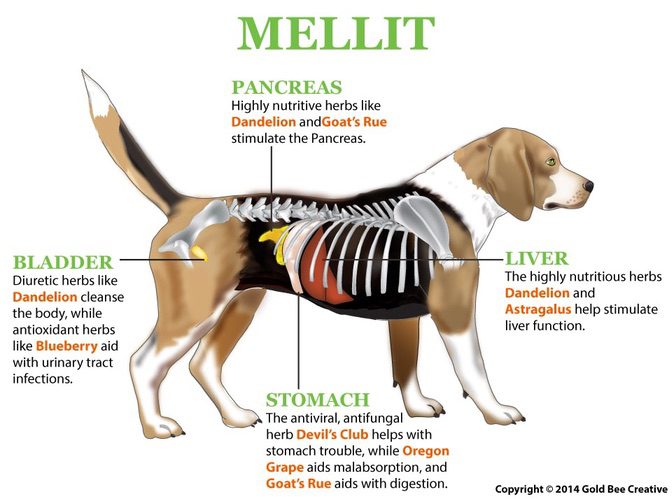
Jambolin – Quickly reduces blood sugars.
Devil’s Club – Helps balance the glandular system and regulate metabolism.
Fenugreek – Improves digestion, soothes irritated tissues, reduces blood sugar levels, and has healing properties.
Gymnema – Binds to sugar receptors to temporarily block the absorption of sugar molecules.
Goat’s Rue – A bitter tonic herb that controls blood sugar levels and stimulates and protects the liver.
Oregon Grape – Promotes the regeneration and functional recovery of B-cells.
Blueberry – A urinary antiseptic that reduces blood sugar levels.
Dandelion – Protects the kidneys, stimulates liver function, and reduces swelling and inflammation.
Astragalus – Strengthens the immune system and acts as an anti-inflammatory.
Select your pet's weight to determine the correct dose.
To be taken twice daily. Determine your pet’s weight and then use the easy chart below to determine the correct dose. This is the minimum dosage.
Pet's Weight Dosage
0 - 15 lb = 0.5 ml
16 - 30 lb = 1.0 ml
31 - 45 lb = 1.5 ml
46 - 60 lb = 2.0 ml
61 - 75 lb = 2.5 ml
Over 75 lb = 3.0 ml
How to Administer
Shake well before use. The easiest method is to use the dropper provide and places the drops into your pet’s food or favorite treat. You can also use the dropper and squirt directly into the pet’s mouth.
Some pets can be finicky, if this occurs consider hiding the drops in foods most pet’s love such as fish, chicken or yogurt or a favorite treat. If your pet only eats dry food then soak a few kibbles at feeding time.
For Best Results
Herbal dietary supplements are beneficial to the health and wellbeing of your pet and are safe for long-term use. Every pet responds to natural herbal supplements differently, therefore it is important to be consistent and administer the product daily. Supplements generally take two to four weeks to take effect, however this will vary from one animal to the next.
Product Storage
All NHV Natural Pet Products are pure herbal extracts and contain no artificial additives, preservatives or coloring. Shelf life after opening is 6 months and must be refrigerated after opening.
Cautions and Contraindications
Do not use Mellit in pregnant or nursing animals. Speak to your vet before using our products. A second visit is recommended if your pet’s condition does not improve, or deteriorates after continued use of the supplements.
All information provided by NHV Natural Pet Products is for educational purposes only.
Gentle Yet Powerful Support for Your Dog
Pancreatitis and diabetes mellitus in dogs are both signs that their pancreas isn’t working as it should, and can mean real trouble for your pup. In addition to vet-prescribed treatment, natural remedies can help. Mellit is used in the support of pancreatitis and diabetes mellitus in dogs.
How NHV Remedies Provide Comprehensive Support for Your Dog
Mellit was formulated with just the right concentration of all-natural ingredients to help dogs with diabetes mellitus and act as a support supplement for dogs with pancreatitis. It’s human-grade quality and produced in a facility approved by the GMP and FDA. Here at NHV, we make a huge investment in clinical research every year, and have our supplements regularly tested by independent labs.
NHV supplements like Mellit are formulated by veterinarians with 20+ years of experience to deliver quick, yet gentle support to your dog where it’s needed. Mellit has powerful ingredients that help balance your dog’s digestive enzymes while lowering their cholesterol and triglycerides.
About Diabetes Mellitus in Dogs
A dog suffering from diabetes either has a shortage of insulin in their body, or their cells are resistant to it. This keeps their organs from converting the glucose in their blood into energy, resulting in too much glucose in their blood.
Insulin is a hormone produced in the pancreas, and supporting the pancreas through all-natural supplements may help with symptoms of diabetes.
About Pancreatitis in Dogs
The pancreas is a small organ that produces digestive enzymes. In dogs, there is a chance the pancreas may become inflamed. The most common reason this happens to dogs is because they’ve eaten something they’re not supposed to, especially something high in fat.
An inflamed pancreas has a chance of leaking digestive enzymes. When that happens, the result is pancreatitis.
Provide Comprehensive Support for your Pet
Order Mellit for your dog, a supplement for dogs with pancreatitis or diabetes mellitus. Together with the conventional treatment prescribed by their veterinarian, Mellit will help your dog with comprehensive support.

Jambolin – Quickly reduces blood sugars.
Devil’s Club – Helps balance the glandular system and regulate metabolism.
Fenugreek – Improves digestion, soothes irritated tissues, reduces blood sugar levels, and has healing properties.
Gymnema – Binds to sugar receptors to temporarily block the absorption of sugar molecules.
Goat’s Rue – A bitter tonic herb that controls blood sugar levels and stimulates and protects the liver.
Oregon Grape – Promotes the regeneration and functional recovery of B-cells.
Blueberry – A urinary antiseptic that reduces blood sugar levels.
Dandelion – Protects the kidneys, stimulates liver function, and reduces swelling and inflammation.
Astragalus – Strengthens the immune system and acts as an anti-inflammatory.
Select your pet's weight to determine the correct dose.
To be taken twice daily. Determine your pet’s weight and then use the easy chart below to determine the correct dose. This is the minimum dosage.
Pet's Weight Dosage
0 - 15 lb = 0.5 ml
16 - 30 lb = 1.0 ml
31 - 45 lb = 1.5 ml
46 - 60 lb = 2.0 ml
61 - 75 lb = 2.5 ml
Over 75 lb = 3.0 ml
How to Administer
Shake well before use. The easiest method is to use the dropper provide and places the drops into your pet’s food or favorite treat. You can also use the dropper and squirt directly into the pet’s mouth.
Some pets can be finicky, if this occurs consider hiding the drops in foods most pet’s love such as fish, chicken or yogurt or a favorite treat. If your pet only eats dry food then soak a few kibbles at feeding time.
For Best Results
Herbal dietary supplements are beneficial to the health and wellbeing of your pet and are safe for long-term use. Every pet responds to natural herbal supplements differently, therefore it is important to be consistent and administer the product daily. Supplements generally take two to four weeks to take effect, however this will vary from one animal to the next.
Product Storage
All NHV Natural Pet Products are pure herbal extracts and contain no artificial additives, preservatives or coloring. Shelf life after opening is 6 months and must be refrigerated after opening.
Cautions and Contraindications
Do not use Mellit in pregnant or nursing animals. Speak to your vet before using our products. A second visit is recommended if your pet’s condition does not improve, or deteriorates after continued use of the supplements.
All information provided by NHV Natural Pet Products is for educational purposes only.
Published: April 6, 2018